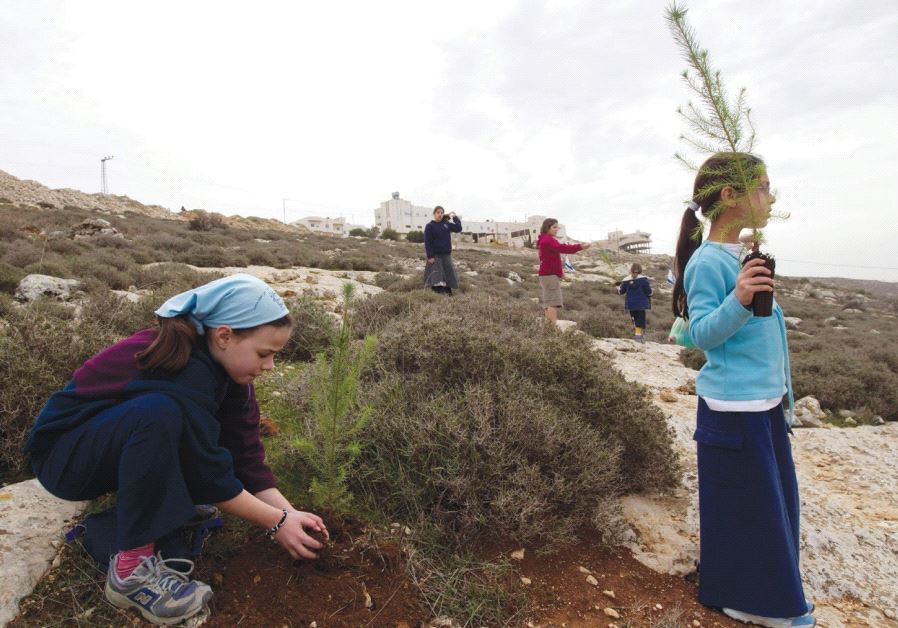Israel’s trees: Cause for celebration and optimism
So as we enjoy our delicious fruits this Tu Bishvat, let us not only give thanks for the delicious vegetation of the Land of Israel.
 A GIRL plants a seedling outside the West Bank settlement of Kiryat Arba ahead of Tu Bishvat
A GIRL plants a seedling outside the West Bank settlement of Kiryat Arba ahead of Tu Bishvat